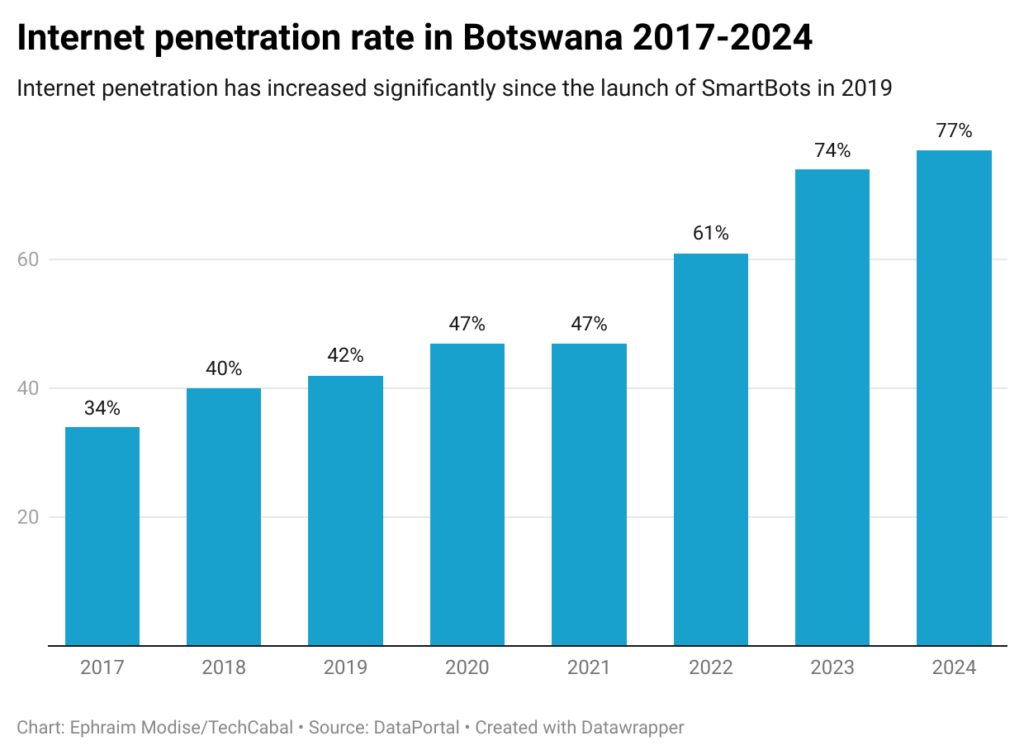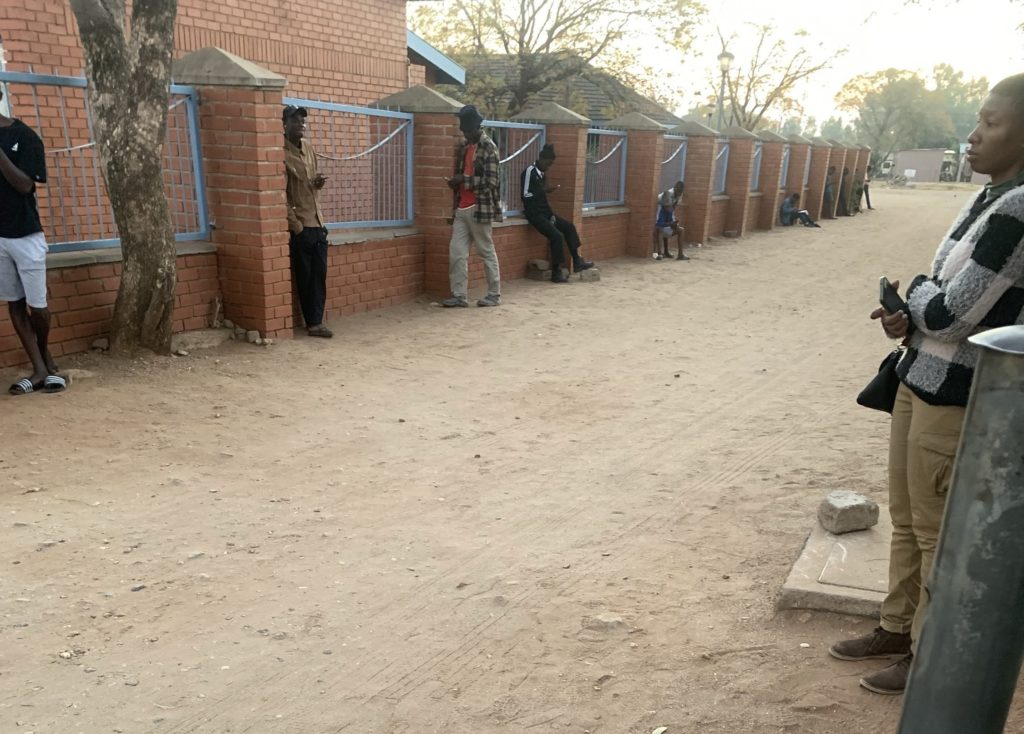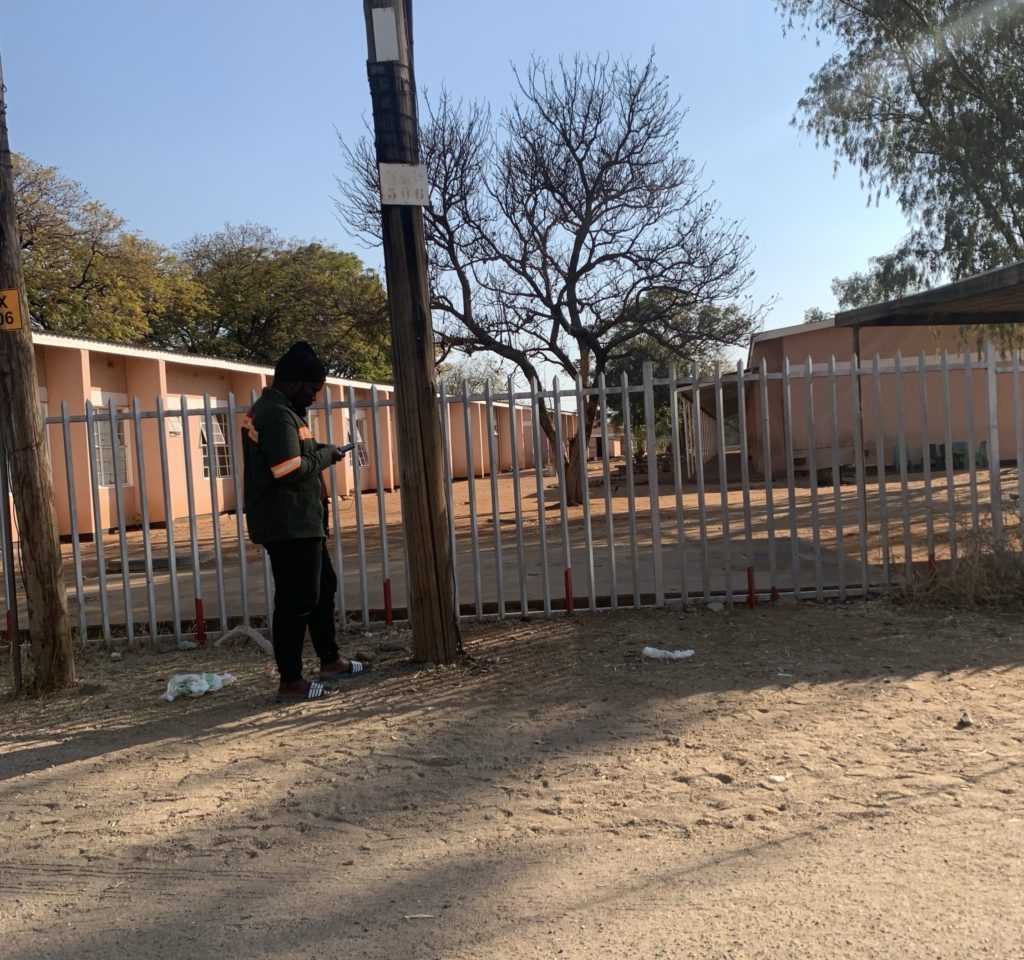Internet subscriptions are expensive in Botswana – 10GB of data can cost 1,400 pesos ($103) in a country where the minimum wage is 1,500 pesos ($111) – making internet access out of reach to young people despite a growing demand for it.
In 2019, Botswana introduced “Smart Bots,” free Wi-Fi routers in public spaces. Now, five years later, the project has achieved great results, attracting more than 1.6 million users. Internet penetration is also expected to increase from 42% in 2019 to 77% by 2024, thanks in large part to the accessibility provided by Smart Bots to low-income groups.
SmartBots routers are installed in public facilities such as clinics, schools and digotras. (traditional courtyards) have Internet speeds of up to 10Mbps. More than 1,100 public buildings have been equipped with SmartBots routers. On an average, more than 130,000 users access the Internet via SmartBots per day, and the government plans to connect more than 500 villages soon.
Botswana’s small, widely dispersed population of 2.4 million makes providing communications infrastructure expensive for telecommunications companies, a cost that is passed on to consumers.

*Kago and *Tumelo, 15-year-old eighth-graders, tell their parents they use smart bots to access learning resources. They spend most of their time watching football highlights on YouTube and scrolling through TikTok. But before smart bots, young people didn’t have access to the World Wide Web like they do now.
“I come here every night because the internet is free, I don’t need a password, it’s close to where I’m staying and I can leave late at night,” Tumelo told TechCabal.
“Our main mission is to connect all the settlements in the country and then move into the densely populated but isolated agricultural areas,” said Ponzo Psoytsile, permanent secretary at the Ministry of Communications, Knowledge and Technology.
SmartBots’ user base has grown over the years and ranges from students to seniors. For young people, use cases for SmartBots include accessing social media, applying for jobs, downloading music series, and even trading forex, making it popular again among Botswana’s youth as unemployment rates rise.

Daniel, 21, arrives at the Tshwaragano Clinic’s Smartbot hotspot around 5.30pm after work. He’s there at least four days a week, surfing the internet well into the evening for social media, updating his phone software and his side hustle of forex trading.
“The free internet has been helpful. I’m learning forex and my friends say it’s easy to make money if you have some intelligence,” Daniel told TechCabal.
But SmartBots isn’t without its issues: Because the service uses home routers, speeds vary depending on how many people are on the network, with most users hitting off-peak times like mornings and evenings, when the most enthusiastic users — students — are at school or at home.

*Mooketsi, 55, usually arrives at the Monarch kgotla SmartBots hotspot around 7pm, when student traffic begins to disperse. He uses the WiFi at least three days a week to download revision material for his 11-year-old daughter, who is preparing for the Primary School Leaving Examination (PSLE).
“I want my daughter to pass and go to college, so this review material that she downloaded will be very helpful to her,” he told TechCabal.
While SmartBots’ password-free Wi-Fi is convenient, cybersecurity experts have warned that using an open network comes with potential risks, raising concerns that the lack of password protection leaves users vulnerable to cyber attacks.
“The service doesn’t use passwords or any form of authentication, so if bad actors gain access to the router, they can easily hack users,” said cybersecurity expert Larona Oreville.
Officials at the Ministry of Communications, Knowledge and Technology did not immediately respond to questions about the cybersecurity concerns of SmartBots. But users don’t seem worried about security risks: As long as they have free access to the internet, everything else comes second.
“We want to be connected just like the rest of the world,” one user wrote, which roughly translates to “We want to be connected just like the rest of the world.”


